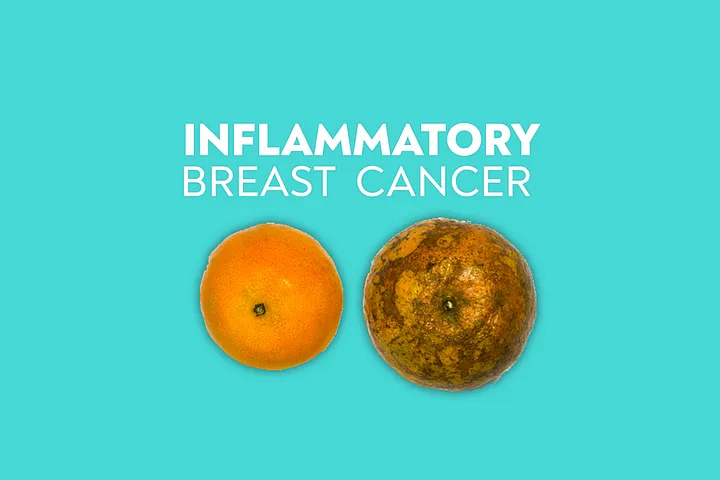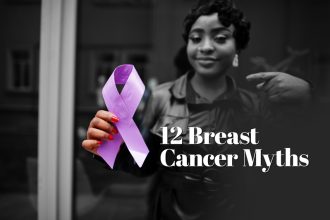I. Introduction
IBC, which is the very rarest and aggressive type of breast cancer, calls for attention and to be studied in more depth because of its need for the right and particular treatment. Unlike other kinds of breast cancer that IBC presents with an entirely new types of symptoms, which progresses very rapidly, gaining timely exposure and diagnosis is paramount for effective intervention.
A simple question like this is one of the most difficult problems that has caused delays in diagnosis.
Inflammatory Breast Cancer (IBC) has been quoted to have been a ‘rapidly evolving subtype of breast cancer’ due to it rapid onset and very aggressive nature. Unlike lump presentations in other forms of breast cancer, IBC does not usually appear with these but rather shows up symptoms like redness, warmth, swelling, and skin alterations. The IBC’s forceful nature distinguishes itself from other conditions of breast abnormalities, so it concerns to standout from other conditions.
Signs and Symptoms of Breast tissue cancer
Awareness of IBC red flags for timely diagnosis as well as intervention is crucial. The usual symptoms are that of an irritation of the skin which is accompanied by burning sensation, swelling, development or enlargement, dimpling of the skin or appearance of ridges, persistence of itching, and increasing breast size with very short or no time. Some of these symptoms may take place within a few days or even weeks, that is why people conclude that the problem does exist and go to see the doctor.
Risk Factors for IBC
It is yet unknown; however, some possibilities other than genetic predispositions can create higher chances of getting IBC in women. These factors may include the age, the gender, a family history of breast cancer, genetic mutations such as BRCA1 and BRCA2, race, ethnicity, obesity, and also lifestyle factors such as smoking and alcohol drinking. This knowledge about the risk factors would facilitate the early detection of the problem and also give proactive tools for its management.
The diagnosis of inflammatory breast cancer can be a difficult one as the disease is characterized by various symptoms that include redness, swelling, pain, warmth, and commonly, discoloration.
The investigation of IBC is typically a cooperative effort that incorporates imaging techniques, biopsies, and clinical appraisal. Clinical breast exams, mammograms, ultrasounds, MRIs, as well skin biopsy (core and skin biopsies), are all of the most important tools of assessing the size of tumor and staging the cancer.
Staging and Prognosis
Staging Inflammatory Breast Cancer(IBC) achieves two goals: It caches the extent of which cancer has spread out and makes better the decision influencing its treatment. Through the TNM staging system, IBCs are classified depending on tumor size, lymph node involvement as well as metastasis. In cancer, although it is heavily armed for war, prognosis changes in accordance with other plain factors such as the degree of advancement of the disease at diagnosis, response to treatment and the individual characteristics.
Treatment Options for IBC
At the time of treating IBC, the method that is mostly employed by professionals is the multidisciplinary approach though it is tailored to kill the disease and stop it from recurrence as well. The chemotherapy drug is aimed at the cancer cells and presurgery it is likely that the neoadjuvant will target them all over a body. Surgem, which in most cases means mastectomy, an operation to remove the cancer-affected breast tissue, followed by radiation therapy to ensure that all the cancer cells are destroyed. The application of precise therapy as well as immunotherapy is also part of a process with a specific approach to fight cancer cells. The same treatment is not used on the healthy tissues of the body.

The Clinical Trials and the emerging Therapies, therefore, represent the major donors for the renewal of pharmaceutical company’s new drugs pipeline.
Enrolling in clinical studies could involve receiving exceptional treatments and safeguarding the progress of the biology of IBC research. In addition, the modern research is centered on finding the keys to the treating targets and moving to the individual patient specific treatment. Encouraging new drug therapies, such as targeted drugs and immunotherapies, tend to logically improve IBC outcomes and raise quality of life for patients with the disease.
Finding a way to bear an aggressive form of breast cancer known as inflammatory breast cancer.
Coping with a diagnosis of IBC is a strenuous task, yet support services and self-care approaches can aid in an individual’s course management. Support groups, counselors as sources, nutritional guidance, and exercise programs provide both emotional support and practical way to be effective to patients and family. Apart from side effects that are associated with the treatment and keeping up with the general wellness are also significant elements of a coping strategy for IBC.
Advocacy and Awareness
Among the most integral factors is to gain knowledge about IBC for an early diagnosis, better treatment result, and support of those who are battling and their families. The function of advocacy organisations in any society is to create platform for creating awareness, raising funds for research work and creating rooms for patients and caregivers who are usually the most affected. There also needs to be some education about the symptoms and signs of IBC for the communities and healthcare providers. This may ensure that infants would get immediate intervention in case of this disease.
Concluding Remarks
Finally, Inflammatory Breast Cancer is a rare, but strong killer which constitutes a substantial agony to the families and people particularly affected. But early diagnosis and awareness together go hand in hand with recent developments in treatment modalities are very vital in overcoming this aggressive kind of disease. By maximizing the connections among researchers, medical practitioners, advocacy bodies and patients, we can all aim at achieving good outcome, quality life and promote more positivity.
Frequently Asked Questions (FAQs)
What is the distinguishing feature of Inflammatory Breast Cancer as compared the others breast cancers?
Cancer of Inflammatory type involves rapid progression and has clinical features of redness, warmth and swelling compared to typical breast tumors which have slower presentation.
Do behavioral sustainments play any role in the prevention of IBC? Does it help?
Unlike with no lifestyle, changing behaviors that contribute to weight loss cope, routine physical activities, and not binge drinking of alcohol and smoking can reduce the chances of breast cancer risk but cannot guarantee prevention.
Do genes play a role in the relationship between Inflatory Breast Cancer and environmental ones?
While mutations of the genes including BRAC1 and BRAC2 are inheritable and they link the patients with more chances of developing breast cancer, but most cases of IBC are not directly linked to any of the inherited genetic mutations
What should I do if I experience symptoms that indicate the possible presence of inflammatory breast cancer disease?
If you get those features rapidly such as breast enlargement, reddening, or any skin alterations, the last person to do is to postpone the medical attention that needs. Your registered healthcare provider is able to carry out the relevant tests and assessments which will find the cause of the symptoms that you are having.
Is a platform on which patients and their families can acquire available supports for Inflammatory Breast Cancer sufferers?
True, support groups, counseling services, and patient advocacy organizations hire expert staff who provide resources, including supportive coping measures to help patients and their families. These agencies may assist people with overcoming the emotional distress, offer practical advice and clarify the details regarding the treatment options and operational techniques.





